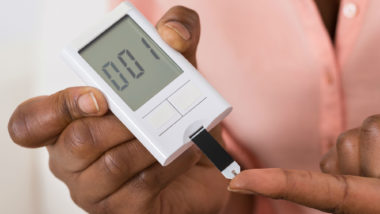 Patients taking SGLT2 inhibitors may have as much as twice the risk of diabetic limb amputation than those who don’t, according to a study from Sweden.
Patients taking SGLT2 inhibitors may have as much as twice the risk of diabetic limb amputation than those who don’t, according to a study from Sweden.
Farxiga is one of the SGLT2 inhibitors linked to the increased risk of amputation of the middle of the foot and toes, according to results of a study headed by Peter Ueda, MD, Ph.D. of Karolinksa University Hospital in Stockholm. Ueda’s study also found a double risk of ketoacidosis in patients taking SGLT2 inhibitors.
Patients with diabetes struggle with unusual blood sugar levels that can cause a variety of health problems. Uncontrolled high blood sugar can cause nerve damage that affects the sensations of the hands or feet. Insulin resistance can cause high blood pressure and cardiovascular problems that hinder circulation.
Poor circulation results in a patient with diabetes to have a hard time fighting infections. Ulcers may appear on the feet and can become gangrenous, which leads to the need for amputation.
Patients who took SGLT2 inhibitors to maintain healthy blood sugar levels say they didn’t expect the drugs to double their risk of amputations.
Diabetic Limb Amputation Risk Linked to Dehydration
Farxiga and other SGLT1 inhibitors control blood sugar levels by stopping excess sugar from re-entering the bloodstream. Instead, excess sugar is excreted through the urine. People with diabetes already excrete approximately one more liter of urine a day than the general population. By taking medication that increases the urine output even more, patients are at increased risk of dehydration.
Dehydration causes circulation problems because there’s not enough liquid to adequately circulate the blood. This also adds to the risk of amputations in the lower extremities.
“You could potentially get more dehydrated if your blood sugars are very elevated,” Dr. David Lam, assistant professor of medicine, endocrinology, diabetes and bone disease at Icahn School of Medicine told WebMD. “Because of the decrease in blood volume, it’s decreasing overall blood flow and that might be compromising someone who’s already at risk for having poor blood circulation to their lower extremities. It could be making an existing problem worse.”
Dehydration also can lead to ketoacidosis, a potentially life-threatening condition marked by increased acids called ketones building up in the bloodstream. Ueda and his team of researchers said that patients taking SGLT2 inhibitors like Farxiga may face double the risk of ketoacidosis over patients taking another type of diabetes drug known as a GLP1 receptor agonist.
Byetta (exenatide), Victoza (liraglutide) and Adlyxin (lixisenatide) are among the common GLP1 receptor agonists. These medications are available by injection only and work by mimicking a specific incretin hormone known as glucagon-like peptide (GLP1). This hormone is released from the small intestine when we eat and works to slow down the food from leaving the stomach, which controls blood sugar levels after meals are eaten.
Ueda said researchers tried to find other links to the increased risk of diabetic limb amputation among the study’s participants, but saw nothing else among their disease history, additional medications, social conditions or economic conditions.
Ueda and his team of researchers analyzed health data from Sweden and Denmark. They looked at data of patients who took SGLT2 inhibitors and compared those with patients who took GLP1 receptor agonists between July 2003 and December 2016.
If you or a loved one experienced diabetes amputation after taking Jardiance or Farxiga, you may have a legal claim and may be eligible to seek compensation from the drug maker for your medical and other expenses. Fill out the form on this page now to see if you qualify!
ATTORNEY ADVERTISING
Top Class Actions is a Proud Member of the American Bar Association
LEGAL INFORMATION IS NOT LEGAL ADVICE
Top Class Actions Legal Statement
©2008 – 2026 Top Class Actions® LLC
Various Trademarks held by their respective owners
This website is not intended for viewing or usage by European Union citizens.
Get Help – It’s Free
Join a Free Jardiance, Farxiga Diabetes Amputation Class Action Lawsuit Investigation
If you qualify, an attorney will contact you to discuss the details of your potential case at no charge to you.
If you took Invokana or Invokamet, you do not qualify for this investigation. Click here to join a separate class action lawsuit investigation.
PLEASE NOTE: If you want to participate in this investigation, it is imperative that you reply to the law firm if they call or email you. Failing to do so may result in you not getting signed up as a client or getting you dropped as a client.
E-mail any problems with this form to:
[email protected].
Oops! We could not locate your form.












